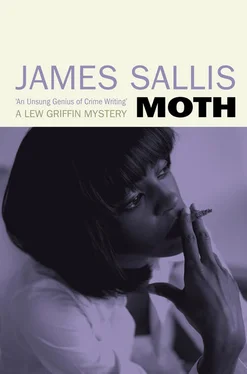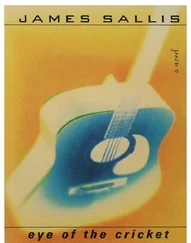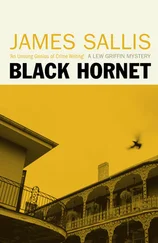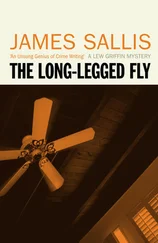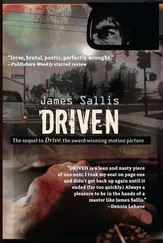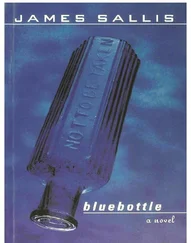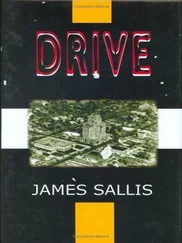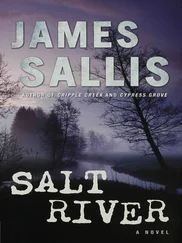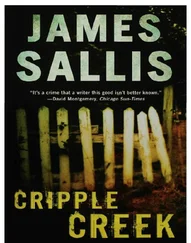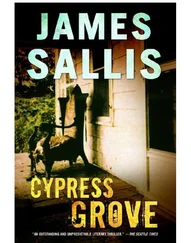James Sallis - Moth
Здесь есть возможность читать онлайн «James Sallis - Moth» весь текст электронной книги совершенно бесплатно (целиком полную версию без сокращений). В некоторых случаях можно слушать аудио, скачать через торрент в формате fb2 и присутствует краткое содержание. Жанр: Криминальный детектив, на английском языке. Описание произведения, (предисловие) а так же отзывы посетителей доступны на портале библиотеки ЛибКат.
- Название:Moth
- Автор:
- Жанр:
- Год:неизвестен
- ISBN:нет данных
- Рейтинг книги:3 / 5. Голосов: 1
-
Избранное:Добавить в избранное
- Отзывы:
-
Ваша оценка:
- 60
- 1
- 2
- 3
- 4
- 5
Moth: краткое содержание, описание и аннотация
Предлагаем к чтению аннотацию, описание, краткое содержание или предисловие (зависит от того, что написал сам автор книги «Moth»). Если вы не нашли необходимую информацию о книге — напишите в комментариях, мы постараемся отыскать её.
Moth — читать онлайн бесплатно полную книгу (весь текст) целиком
Ниже представлен текст книги, разбитый по страницам. Система сохранения места последней прочитанной страницы, позволяет с удобством читать онлайн бесплатно книгу «Moth», без необходимости каждый раз заново искать на чём Вы остановились. Поставьте закладку, и сможете в любой момент перейти на страницу, на которой закончили чтение.
Интервал:
Закладка:
Around five I roused more definitively, showered and shaved, and called a cab.
Clare, a Corona, salsa and chips were waiting for me. A speaker set into the ceiling over our table spooled out the news in rolling, robust Spanish. We ordered-rice and black beans, shredded meat stewed with onions and peppers, a Cuban coffee for me; nachos, empanadas and croquetas for Clare-and filled in recent blanks like the old friends we were. I told her about my lead on Alouette and said I’d be out of town for a few days. She told me that Bat had claimed squatter’s rights atop the refrigerator and passed along new revelations from a course in Flemish art she was taking at Tulane.
Somewhere along in there, with half or more of my beans and rice gone, I said something about knowing we’d been kind of backing away from one another these last months, and noticed she was looking into her plate a lot.
“Lew,” she said when I stopped to order another coffee, “I have no idea what the hell you’re talking about. You know that? I haven’t been backing away. You have. All I’ve done is just keep trying, every way I know, to keep myself from taking that necessary step or two toward you. To close the distance. When the whole time that’s all in the world I wanted.”
My coffee came, dark and heavy and sweet as summer nights, in its stainless-steel demitasse cup and saucer.
“I’ll tell you how you can tell the dancer from the dance,” she said. “Sooner or later the dancer always has to talk about why he’s doing what he does. The dance just happens.” She laughed. “Yeats: what the hell did he know, anyway? Impotent most of his life. Writing all that romantic, then all that mystical, stuff. And a child again, himself, there at the end.”
I pushed beans onto my fork with a chip, doused the chip in salsa and then in chopped peppers from a tiny side dish.
“So. Guess this means you’re not going to take me home, huh?”
“No,” she said, eyes meeting mine. “No, it doesn’t mean that at all, Lew. I don’t know what it means. Maybe it doesn’t mean anything. Maybe meaning doesn’t have anything to do with any of this.”
She folded her napkin and laid it on the table.
“Coming with?” she said.
Oh yes.
I have been so very long at sea.
Chapter Thirteen
Before the old man finally gave up on it-before he finally gave up on just about everything-he used to haul me out hunting with him the first few times he went out each season. Something was supposed to happen out there in the woods, I guess, with just the two of us, a father and his son, men of a different size observing these ancient rituals together, but it never did. I’d already learned to shoot, with bottles heeled into a hillside out behind our house, and that was the part I was interested in. So I’d just walk alongside Dad with my old single-shot.410 cradled in the crook of an arm and carefully pointing to the ground as he’d taught me, in early years daydreaming about friends and would-be friends in the neighborhood and next weekend’s get-togethers, later about the things I’d begun discovering in books, with the twin plumes of our breath reaching out into the chill morning and reeling back, Dad every so often (it seemed always a continuous action) shouldering his.12-gauge, firing, and tucking dove, quail or squirrel into the game pocket of his scratchy canvas coat. After a couple of hours we’d stop, find a tree stump and have coffee from his thermos, wrapping hands around nesting plastic cups for warmth. On extremely cold days he brought along a hand warmer the size of a whiskey flask; you filled it with alcohol, lit the wick, slid on a cover and felt sleeve, and it smoldered there in your pocket. We’d pass it back and forth the way men pass around bottles of Jim Beam at deer camp, like athletes toasting a victory. But neither of us was an athlete. And neither of us would know many victories in his life.
I remembered all this, something I hadn’t thought of in many years, as I drove up I-55 through mile after mile of unfenced farmland stretching to the horizon, past refurbished plantations, crop duster airfields and country stores selling everything a man could need, Gas, Food, Beer : this long sigh of the forever postcolonial South. I pulled off for coffee at truckers’ roadside stops and Mini Marts where people seemed uneasy, even now, at my presence, despite (or just as easily because of) my dark suit, chambray shirt and silk tie. Attendants at gas stations watched me closely from their glassed-in pilot-houses. When I stopped for a meal at The Finer Diner near Greenville, two state policemen, bent over roast beef specials in a booth by the door, repeatedly swiveled heads my direction, conferring.
Paranoia? You better believe it. My birthright.
In the town where I grew up, there was one main street, called Cherry in my little rubber-stamp town, Main or Sumpter or Grand in a hundred others like it. At one end of this street was a cafe, Nick’s, where my father and I in stone darkness Saturday mornings heading out to hunt would order breakfast on paper plates through a “colored” window leading directly into the kitchen (the only time I recall anyone in the family ever eating out), and at the other, ten blocks distant, a bronze statue of a World War I soldier, rifle with bayonet at ready, which everyone called simply the Doughboy.
For a period of several months when I was thirteen or so, every Saturday night, like clockwork, someone managed-no simple task, with city hall and the police station right there on the circle-to paint the Doughboy’s face and hands black with shoe polish. You’d go by every Sunday morning and see one of the black trustees from the county jail up there with a bucket and rags, scrubbing it down.
Then, just as suddenly as it had started, it stopped. Some said because the smartass nigger responsible had graduated from high school and, good riddance, gone up North to college. Some said because Chief Winfield and his boys had caught him in the act and done what was only right.
And my father, from whom I never before remember hearing a racial complaint, this man who called the children of white men he worked for Mistah Jim and Miz Joan, said: “Lewis, you see how it is. Here we raise his children for him, cook for him, bring up his crops, butcher his hogs-even fight his wars for him-and he still won’t acknowledge our existence.”
We were sitting on the steps of the railroad roundhouse across from Nick’s eating our breakfasts one of those lightless early mornings, maybe the last before I stopped going along. Steam rose off eggs and grits in the cold air; our paper plates were translucent with grease.
“You know those Dracula movies you watch every chance you get, Lewis? How he can never see himself in mirrors? Well, that’s you, son-that’s all of us. We trip across this earth, work and love and raise families and fight for what we think’s right, and the whole time we’re absolutely invisible. When we’re gone, there’s no record we were ever even here.”
For years I thought of that as the day my father began shrinking.
Now, years later, I remember it as one time among many that he was able momentarily to rise out of the drudge of his own life and offer an example-to give me sanction, as it were-that in my own something more might be possible.
It’s a terrible thing, that I could ever have forgotten these moments, or failed to understand them.
Oddly connected in my thoughts with all this as I Mazdaed into pure Faulknerland, Oxford, Tupelo, was a night Clare and I met, early on in our friendship, at a Maple Street pizzeria and went on to the Maple Leaf for klezmer music, impossibly joyful in its minor keys, clarinet beseeching and shrieking, stolid bass and accordion plodding on, half East Europe’s jews dying in its choruses.
Читать дальшеИнтервал:
Закладка:
Похожие книги на «Moth»
Представляем Вашему вниманию похожие книги на «Moth» списком для выбора. Мы отобрали схожую по названию и смыслу литературу в надежде предоставить читателям больше вариантов отыскать новые, интересные, ещё непрочитанные произведения.
Обсуждение, отзывы о книге «Moth» и просто собственные мнения читателей. Оставьте ваши комментарии, напишите, что Вы думаете о произведении, его смысле или главных героях. Укажите что конкретно понравилось, а что нет, и почему Вы так считаете.
